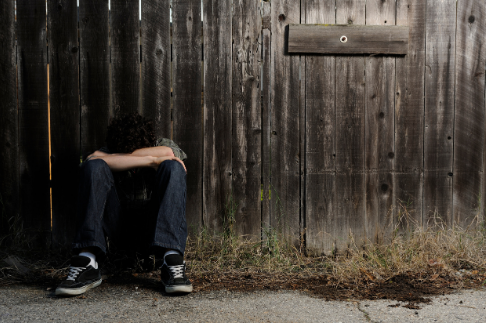COVID-19 and Suicide in Teenagers
Posted by Maria Droste Counseling Center on Dec 11, 2020 in Grief, Loss, Depression and Suicide
According to the CDC, suicide is the second-leading cause of death among teens. Since the lockdowns to prevent the spread of COVID-19 started last Spring, it seems that not a week goes by where a story of a young person completing suicide isn’t in the headlines or being shared across social media. Teens have always been a high-risk group for suicide, but the risks increase dramatically during crises, and the pandemic is no exception.

Teenagers are a high-risk group for suicide.
Suicide does not discriminate. Anyone can be at risk, but during COVID-19 shutdowns, teens could be more likely to experience feelings of social and emotional isolation. Along with being separated from their support systems at school, many have had to miss out on traditions such as prom and senior year activities. Most graduation ceremonies were delayed and altered to comply with recommended pandemic precautions.
Since no one knows how long this situation will last, there has been an increase in anxiety and frustration, which can lead to disturbances in sleeping and eating habits.
Other risk factors include a history of mental health disorders or substance use disorders, a family history of suicide, violence, bullying, and having guns in the home.
How parents and caregivers can be proactive
There are several warning signs for depression and suicidal ideation that parents and caregivers should watch for.
Parents and caregivers can be on the lookout for:
- Changes in eating or sleeping habits
- Isolation and social withdrawal
- Irritability and drastic mood swings
- Lack of interest in preferred activities
- Acting out behaviors such as running away
- Unprovoked anger or episodes of rage
- Substance abuse
- Neglecting their appearance
- Obsession with death and dying
Parents know their kids better than anyone else. Pay attention to changes in behavior and trust your gut. If anything seems off, don’t wait. Seek help immediately.

Children need our help!
For $50, we could provide a troubled child with home-based counseling, including play therapy! Thanks for supporting your fellow Coloradans with the mental health care they need.
How parents can protect their at-risk teenager
Teenagers, especially young teenagers, are often not mature enough to realize that a bad situation is not forever, and many are prone to acting impulsively. Teens often have difficulty reaching out to anyone for fear of being stigmatized or ostracized by their peers.
When a teen is struggling, connection and communication are crucial. When connection is already limited in so many ways, it is even more vital to regularly check in with them, even though they may make it seem like you’re overbearing.
There are practical ways to reduce the risk at home for parents who have teenagers with a history of depression or other mental health issues.
- Remove access to any potentially life-threatening items in the home, such as firearms or harmful substances.
- Closely monitor teens with a history of self-injury or suicide attempts.
- Check-in with your teen regularly to see how they’re feeling.
- Acknowledge the reality of the pandemic but reassure your teen that it’s temporary and that they aren’t alone in feeling like this.
It’s essential to treat any talk of self-harm or suicide seriously. Call 911 or go to the nearest emergency room in an acute situation if your teen cannot be kept safe in the home. You can also contact the Colorado Crisis Line for assistance by calling 1-844-493-TALK (8255) or texting “TALK” to 38255.
If you feel that your teenager is struggling or needs someone to talk to, contact Maria Droste Counseling Center’s Access Center at 303-867-4600 to speak to a counselor. You can also email intake@mariadroste.org.
Written by Jennifer Arnold, M.A.
Need Help?
If you would like to speak to a therapist about this subject or about any other issue you may be experiencing, contact the Maria Droste Access Center at 303-867-4600.
Get Informative Posts like this Sent to Your Inbox
Maria Droste posts regularly on helpful mental health and wellness subjects like the one you just read. We send these out in our free monthly newsletter. Subscribe today and get informative reads like this sent straight to your inbox.
